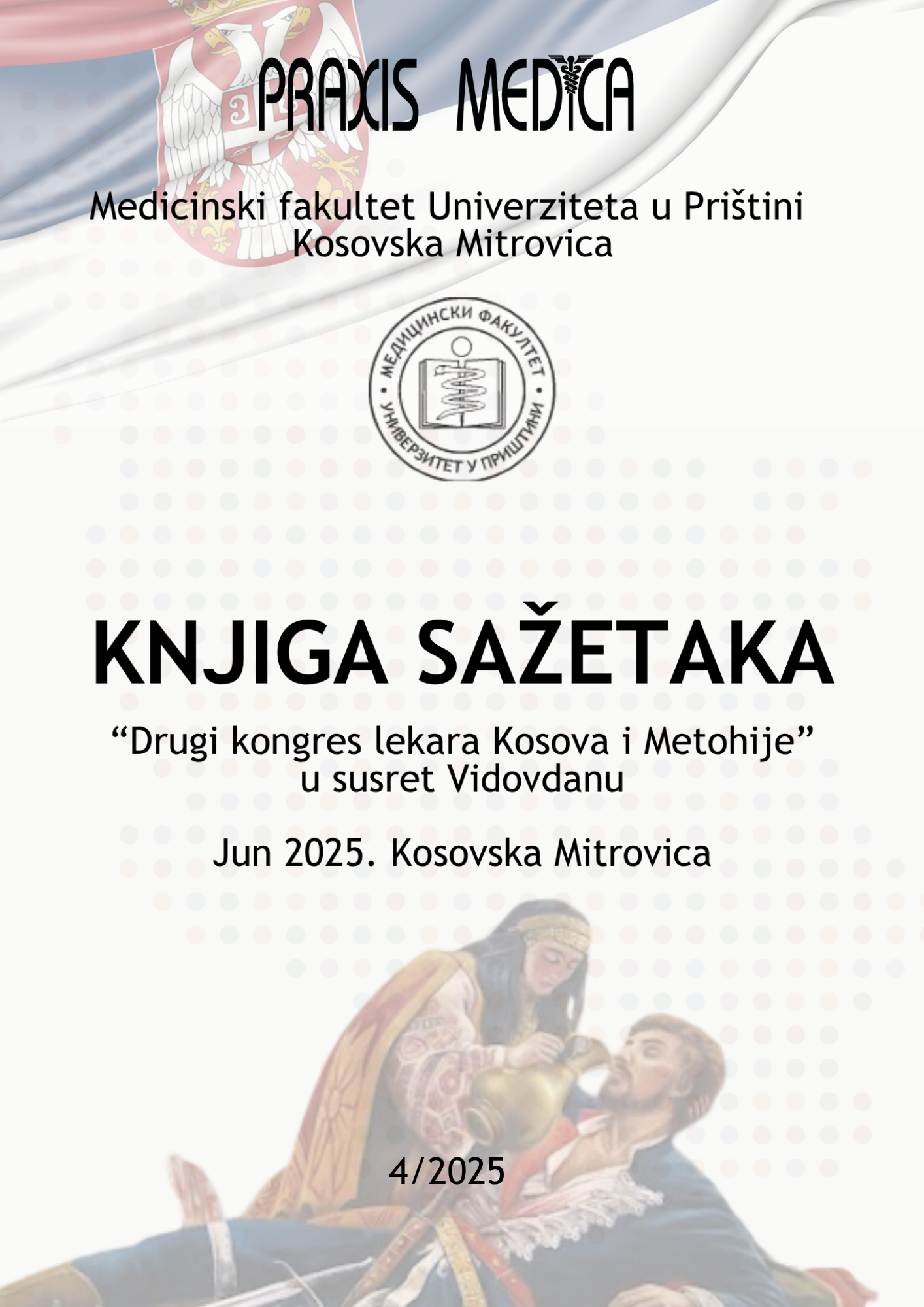
More articles from Volume 32, Issue 2, 2004
THE CHANGES IN BIOCHEMICAL BLOOD STRUCTURE AS A RESULT OF ACUTE DOG INTOXICATION WITH COPPER SULFATE
THE EFFECTS OF ESOMEPRAZOLE ON ALCOHOL INDUCED STRESS ULCER LESIONS IN RATS
ESSENTIAL CHARACTERISTICS OF REPEATED MYOCARDIAL INFARCTION
FREQUENCY OF CERVICAL PLANOCELLULAR CARCINOMA
BARIUM ENEMA AND CHRONIC APPENDICITIS
Citations

0
INFLUENCE OF EMOTIONAL DISORDERS ON THE RECOVERY OF PATIENTS AFTER THE STROKE
Clinic for rehabilitation, Clinical centre , Novi Sad , Serbia
Department of Physiology, Medical faculty , Novi Sad , Serbia
Department of Physiology, Medical faculty , Novi Sad , Serbia
Institute of Physiology, Medical faculty , Priština, Kosovska Mitrovica , Kosovo*
Published: 01.12.2004.
Volume 32, Issue 2 (2004)
pp. 47-50;
Abstract
The patients after the stroke besides impaired motor functions,often have cognitive and emotional disorders which
can endanger the successful carrying out of the rehabilitation treatment. The objective of this study was to estimate the
functional capability and to determine the cognitive and emotional disorders of the patients after the stroke. The research has
ecompassed 40 patients after the stroke of specified age and gender structure, treated in the Clinic for Rehabilitation, of the
Clinical Center in Novi Sad. The data have benn gathered from the anamnesis, clinical and neurological check, test of the
activity in everyday life, the findings of the psychologist on the emotinal status, as well as from the available medical
documentation about the patient. The average values of the Barthel's index are increased for 14.86% after the rehabilitation
treatment. The results show a strong presence of the emotional disorders with 57.5% of the patients. The increased values of Barthel's index and Mini Mental test at the end of the treatment show the undoubtfull importance of the rehabilitation
treatment in the recovery of the patients. The emotional disorders cause the worse recovery of the patients.
Keywords
References
Citation
Copyright

This work is licensed under a Creative Commons Attribution-NonCommercial-ShareAlike 4.0 International License.
Article metrics
The statements, opinions and data contained in the journal are solely those of the individual authors and contributors and not of the publisher and the editor(s). We stay neutral with regard to jurisdictional claims in published maps and institutional affiliations.






